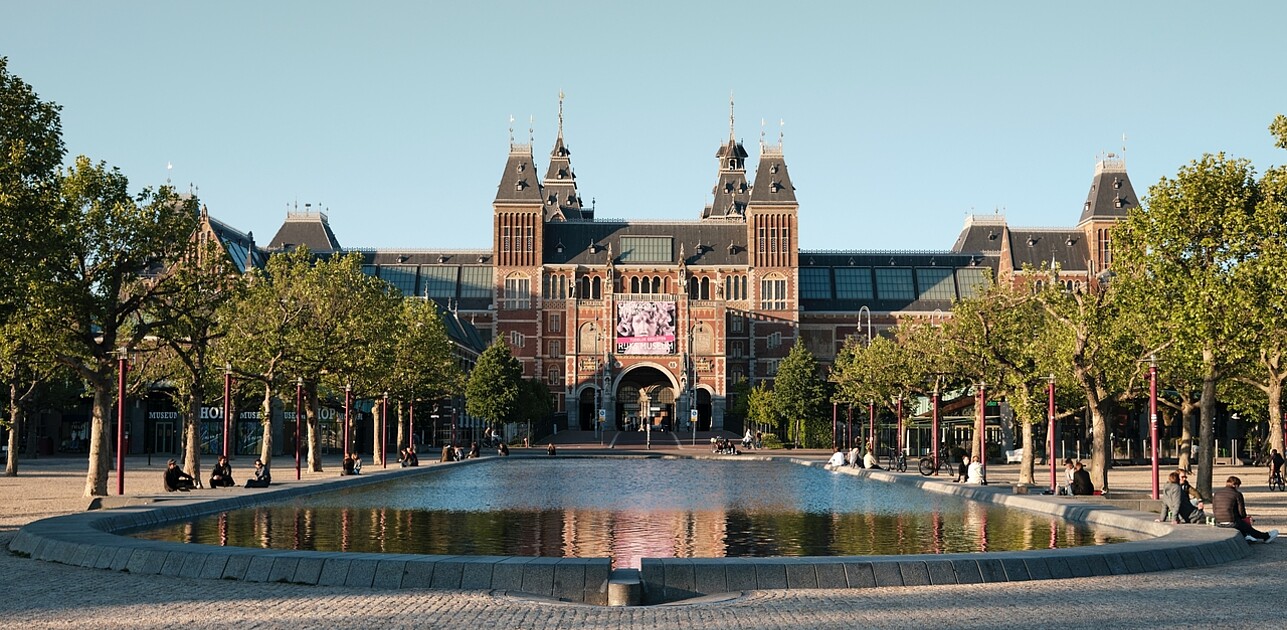

Video: Friday, 12 June 2015
Subsidies for museums are decreasing and as a result, securing potential partners and sponsors has become more important, so a good reputation is essential. New research by Professor Cees van Riel, Professor of Corporate Communication at RSM and co-founder of the Reputation Institute, used the RepTrak® method to show how strong art museums’ reputations actually are. The method provides a standardised framework for identifying factors that drive reputations, and for international benchmarking of corporate reputations.
A score below 40 indicates a poor reputation; 60-69 is a moderate result, and everything above 80 is excellent. The 10 most visited Dutch art museums score an average of 82.4 on the RepTrak® scale, with Amsterdam’s recently renovated Rijksmuseum scoring highest with 87.8.
Dutch art museums in the study of the reputations of more than 150 museums in 2014 outperformed the 30 largest corporations in the Netherlands. The best-performing company was Philips with a score of 79.6, which was easily surpassed by the museums.
The reputation of museums was measured using a model that tracks seven performance indicators, such as an attractive and inspiring collection, having a positive effect on society, taking responsibility for educating it, and being a professional organisation. According to Prof. Van Riel’s research, museums are popular because of their specialist collections. Respondents said museums should focus on exhibits that interest the general public as well as elite audiences, and they should guard the Dutch national heritage. Almost half of all respondents, 44.4 per cent of the general public, views a museum visit as a day trip.
While many people would never consider visiting a company as a day trip, businesses can still learn something from the glowing reputations of Dutch museums. Maintaining attractive displays and high visibility, being seen as trustworthy and responsible organisations, and being perceived as welcoming to the general public as well as specialist customers are the most obvious parallels that would maintain a businesses’ reputation.
What’s more, Dutch museums’ outstanding results make them ideal for endorsing companies because their good reputations spill over to the firms, says Professor Van Riel.
Reputation Institute is the world’s leading reputation research-based consulting and advisory firm, enabling companies to make more confident business decisions that build and protect reputation capital, analyse risk and sustainability topics, and drive competitive advantage. The organisation’s most prominent management tool is the RepTrak® model for analysing the reputations of companies and institutions, best known via the Global RepTrak® 100, the world’s largest and most comprehensive study of corporate reputations. www.reputationinstitute.com
Rotterdam School of Management, Erasmus University


Science Communication and Media Officer
Rotterdam School of Management, Erasmus University (RSM) is one of Europe’s top-ranked business schools. RSM provides ground-breaking research and education furthering excellence in all aspects of management and is based in the international port city of Rotterdam – a vital nexus of business, logistics and trade. RSM’s primary focus is on developing business leaders with international careers who can become a force for positive change by carrying their innovative mindset into a sustainable future. Our first-class range of bachelor, master, MBA, PhD and executive programmes encourage them to become to become critical, creative, caring and collaborative thinkers and doers.
